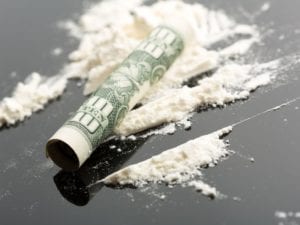
When you think of a cocaine addict, what is the first thing that comes to your mind?
Many people assume a cocaine addict is some homeless, untidy person with insatiable cravings and financial challenges. This perception is not always true. An elegant executive managing a top-tier firm can also be a cocaine addict.
An executive's success doesn't insulate them from the effects of substance abuse. It can make them more susceptible to cocaine addiction. They are likely to hide their substance abuse struggles to avoid losing their standing.
Executive rehab can help top managers overcome their addiction. Addiction treatment centers customize this program to help executives while providing some benefits.
Addiction Doesn't Care About Your Money
Many people associate cocaine addiction with homeless, unemployed, messy, and out-of-control individuals. They think that only these individuals can develop cocaine addiction because of their situation or living conditions.
Cocaine addiction doesn't care about social boundaries or groups. It can affect anyone in society, from the top-level executive to the homeless individual. Some factors, such as a chaotic life, peer pressure, stress, genetics, and parental neglect, make one susceptible to cocaine abuse.
Executives may have the resources to get cocaine without making a fuss. They may also use their money to conceal their addiction. However, addiction is a progressive disease. Prolonged use of cocaine leads to health deterioration and other effects that the executive cannot hide.
Why Executives May Use Cocaine
Executives can turn to cocaine for various reasons.
Traits in Executives That Increase Cocaine Abuse Risk
Several traits make executives rise to the top. Many of these characteristics can drive and perpetuate cocaine addiction.
Many executives are risk-takers and proactively seek new experiences. They challenge the status quo and question existing beliefs. These qualities make them try risky ventures and develop new ideas.
Many addicts also show novelty-seeking behavior. They want to experience activities involving high levels of stimulation to get the pleasures others get from lower, more typical stimulation levels.
The urge for high stimulation may be beneficial to the executive's work. However, it may be harmful with cocaine. They may abuse cocaine to sustain the high stimulation.
Some executives may have grown up in dysfunctional families. Their parents may have offered conditional love. They had to earn it with success, such as academic excellence, athletic prowess, or something else.
Some executives may have grown up in a turbulent home. Circumstances may have forced them to take care of their siblings or parents. For example, their parents may have been addicts, leaving them to take care of their siblings. The feeling of responsibility may have driven them to excel.
These executives may pursue their dreams to fill an emotional void. However, they may realize that success isn't enough once they succeed. They may turn to cocaine abuse to fill the void or distract themselves.
Executives can develop a persona to insulate themselves against feelings of insecurity. They may appear optimistic, upbeat, and self-assured. Adopting and sustaining this persona can come at a cost. It may cut them off their impulses and feelings.
While this persona can serve them some good at the firm, it may interfere with their intimacy and openness with others. They may use cocaine to deal with their suppressed emotions and feelings of loneliness.
Many executives are demanding, and they set high standards for themselves and other employees. They cannot accept failure, and they want everything to be perfect. If there's any deviation from the perfect outcome, they may spend a lot of time figuring out ways to improve.
The effort the executives put towards achieving perfection can be draining. They may not have the energy for other activities, such as hanging out with friends or doing fun activities. These executives can turn to cocaine to get more energy or fill the void left by their neglect.
Why Executives Are Unlikely To Seek Substance Abuse Treatment
Executives may be hesitant to seek drug abuse treatment for many reasons.
Addiction is a disease that can cause more problems if an executive doesn't manage it. Employees, friends, or family members may need to intervene before the situation gets out of hand. Getting through to an executive may require intervention, evidence, and one-on-one conversations. Pointing out to their decline in performance can help your case.
Executive and Luxury Rehab
Executives may need professional help to overcome their cocaine addiction. Executive rehab and luxury rehab offers the private, luxurious, expert, and customizable addiction treatment an executive might need. Facilities offering this service will help them detox, manage their rehabilitation, and guide them through the sobriety phase.
Coastline Behavioral Health offers executive rehab. Our team has a lot of experience managing executives' addictions. We will offer reliable and private treatment to help the executive get better.
Call us at (714) 841-2260 to discover more about our executive rehab programs.
Drug Rehab SEO. Addiction treatment centers operated in California by Crescent Moon Rehab Center Orange County LLC